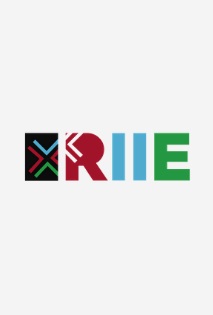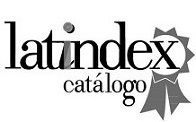ORGANISATION AND MANAGEMENT OF EDUCATION FROM THE COMMUNITY. OPENNESS, PARTICIPATION, AND SHARED LEADERSHIP
DOI:
https://doi.org/10.30972/riie.16228045Keywords:
organisation and management, leadership, school-community relationship, social changeAbstract
The present study is part of a broader research project on collaborative networks in education where the aim is to know, understand, and analyse educational experiences of collaboration between the University and the Community. The paper focuses on the experiences of two primary schools, one in a rural context and the other in an urban context, whose management teams are part of its authorship, with the intention of sharing how management is thought and developed in these schools from the involved people’s viewpoint. We highlight some relevant dimensions that enable us to understand the organisation and management of the centers that we consider open, with a community vision centred in all agents’ learning: families, associations, students, and multiple institutions. The research process is developed from a collaborative perspective with a horizontal dialogue. Interviews, observations, records, participation in the daily project of the centres, and document analysis have been used as tools. The resulting abundant information has led us to know how the projects are initiated, what the main characteristics of the management models are, and some questions related to the gender that runs through both narratives. We conclude by analysing the results and highlighting the learning arisen from these two management experiences that seek transformation through the openness and involvement of the whole community.
Downloads
References
Acuña, M., Grinberg, S. y Rivas, J.I. (2023). Hacer es reinventar: el suelo escolar en contextos de pobreza urbana. Revista Colombiana de Educación, 88, 74-95. https://doi.org/10.17227/rce.num88-13442
Bolívar, A. (2015). Un liderazgo pedagógico en una comunidad que aprende. Revista Padres y Maestros, (361) 23-27. https://doi.org/10.14422/pym.i361.y2015.004
Cortés, P., Rivas, J.I. y Leite, A.E. (2023). Escuela y Transformación social. Otra mirada de la organización escolar. Madrid, España: Octaedro.
Cortés-González, P. & Rivas-Flores, J. I. (2024). Nomadic knowledge in emerging pedagogical contexts: ethnographic experience in two secondary schools in Málaga, Spain. Ethnography and Education, 1–18. https://doi.org/10.1080/17457823.2024.2347608
DeLuca, C., Shulha, J., Luhanga, U., Shulha, L. M., Christou, T. M. & Klinger, D. A. (2014). Collaborative inquiry as a professional learning structure for educators: a scoping review. Professional Development in Education, 41(4), 640–670. https://doi.org/10.1080/19415257.2014.933120
Díaz, V. (2024). Educación intercultural y liderazgo escolar dialógico desde la pedagogía crítica y decolonial de las escuelas rurales en los territorios del sur de Abya Yala. En L. Pincheira y G. López (Eds.), Decolonialidad e interculturalidad crítica (pp. 243-259). Ariadna Ediciones.
Garcés, M., Miño-Puigcercós, R., Neut, P. y Passerón, E. (2022). Reconstruir un mundo en el que valga la pena vivir: experiencias para la emancipación y la transformación de la escuela. Revista Izquierdas (51), 1-14. https://dialnet.unirioja.es/servlet/articulo?codigo=8361343
Gibbs P., Neuhauser L. & Fam D. (2018). The Art of Collaborative Research and Collective Learning: Transdisciplinary Theory, Practice and Education. In D. Fam, L. Neuhauser & P. Gibbs (Eds.) Transdisciplinary Theory, Practice and Education. Springer, Cham. https://doi.org/10.1007/978-3-319-93743-4_1
Hooks, B. (2024). Enseñar Comunidad. Una pedagogía de la esperanza. Bellaterra.
Khaqan, S. & Redondo-Sama, G. (2024). A systematic review of the role of dialogic leadership: Characterization and impacts. Educational Research Review, 44, 100618. https://doi.org/10.1016/j.edurev.2024.100618
Murillo, J. (2006). Una dirección escolar para el cambio: del liderazgo transformacional al liderazgo distribuido. REICE, Revista Electrónica Iberoamericana sobre Calidad, Eficacia y Cambio en Educación, 4(4), 11-24. https://www.redalyc.org/articulo.oa?id=55140403
Plank, K., Sanzo, K.L. & Scribner, J.P. (2024). Differences in leading and learning professional learning communities. Journal of Workplace Learning, 36 (5), 335-347. https://doi.org/10.1108/JWL-02-2024-0022
Padrós, M. & Flecha, R. (2014). Towards a Conceptualization of Dialogic Leadership. International Journal of Educational Leadership and Management, 2 (2), 207-226. https://doi.org/10.4471/ijelm.2014.17
Rivas, J.I. y Leite, A. E. (2017). Dirección, Institución Educativa y Democracia. En E.M. Miranda y N. Z. Lamfri (Eds.). La educación secundaria: cuando la política educativa llega a la escuela (pp.113-125). Miño y Dávila.
Serrano Martín, M.P, García-Vao Bel, M.J. y Lozano Salinas, J. M. (2023). Estrategias que favorecen la emergencia de liderazgos dialógicos de las familias y la comunidad. En K. Gajardo Espinosa y J. Cáceres Iglesias (Eds.), Soñar grande es soñar juntas. En busca de una educación crítica e inclusiva (pp. 735-748). Octaedro.
Valls, R. & Ignatiou, Y. (2021). Dialogic leadership in schools as learning communities. In Schools as Learning Communities.
Downloads
Published
How to Cite
Issue
Section
License
Aquellos autores/as que tengan publicaciones con esta revista, aceptan los términos siguientes:
- Los autores/as conservarán sus derechos de autor y garantizarán a la revista el derecho de primera publicación de su obra, el cuál estará simultáneamente sujeto a la Licencia de reconocimiento de Creative Commons que permite a terceros compartir la obra siempre que se indique su autor y su primera publicación esta revista.
- Los autores/as podrán adoptar otros acuerdos de licencia no exclusiva de distribución de la versión de la obra publicada (p. ej.: depositarla en un archivo telemático institucional o publicarla en un volumen monográfico) siempre que se indique la publicación inicial en esta revista.
- Se permite y recomienda a los autores/as difundir su obra a través de Internet (p. ej.: en archivos telemáticos institucionales o en su página web) antes y durante el proceso de envío, lo cual puede producir intercambios interesantes y aumentar las citas de la obra publicada. (Véase El efecto del acceso abierto).






.jpg)




